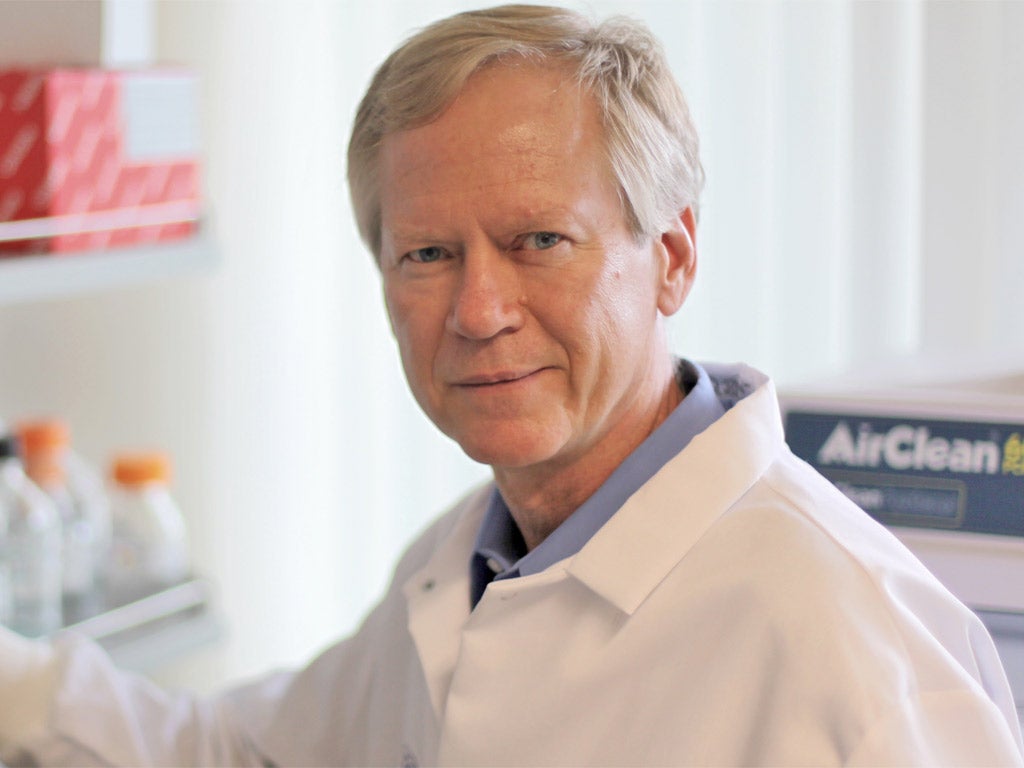No way of stopping leak of deadly new flu, says terror chief
US biosecurity board expert warns against details of H5N1 bird flu getting into wrong hands

The bioterrorism expert responsible for censoring scientific research which could lead to the creation of a devastating pandemic has admitted the information "is going to get out" eventually.
Professor Paul Keim, chairman of the US National Science Advisory Board for Biosecurity, controversially recommended that researchers be stopped from publishing the precise mutations needed to transform the H5N1 strain of birdflu virus into a human-transmissible version.
In an exclusive interview with The Independent, he argued it had been necessary to limit the release of the scientific details because of fears that terrorists may use the information to create their own H5N1 virus that could be spread easily between people.
Professor Keim said that it was necessary to slow down the release of scientific information because it was clear that the world is not yet prepared for a strain of highly lethal H5N1 influenza that can be transmitted by coughs and sneezes.
“We recognised that, in the long term certainly, the information is going to get out, and maybe even in the mid term. But if we can restrict it in the short term and motivate governments to start getting busy in terms of building up the flu-defence infrastructure, then we’ve succeeded at a certain level,” he said.
“If we can slow down the release of the specific information that would enable somebody to reconstruct this virus and do something nefarious, even for a while, then that was a good thing.”
By withholding key details of the mutations needed to make an airborne strain of H5N1, this would give time for governments to prepare for and prevent a possible pandemic, he added.
“The infrastructure to stop a pandemic in this area is not there. We just don’t have the capabilities. The very first time we knew that the swine flu virus [coming out of Mexico] was there, it was already in 18 countries. I’m not confident at all that we have the surveillance capability to spot an emerging virus in time to stop it,” he said.
“And even if we did spot it early on, I don’t think we have sufficient vaccines. The vaccines aren’t good enough, and the drugs are not good enough to stop this emerging and being a pandemic.”
Although H5N1 spreads rapidly between birds, it has so far affected only about 600 people worldwide who have had direct contact with infected poultry. However, two teams of researchers have shown independently that it only requires five mutations for H5N1 to become an airborne pathogen for laboratory ferrets, the standard animal model for human influenza.
Professor Keim said that the biosecurity board was asked by the US Government to review the two independent studies because they had already been submitted to the journals Science and Nature. The board had to make a recommendation on whether any or all of the information should be published.
Scientists involved in showing how the H5N1 birdflu virus can be transmitted in the air between ferrets have criticised the biosecurity board’s decision to part-censor their research on the grounds that it would hinder the development of new vaccines and drugs.
However, Professor Keim dismissed the criticism as disingenuous. “The argument that we need this information to make better vaccines and better drugs does not ring true,” he said. “There are lots of ways to make drugs against this virus. The very drugs they were using against this virus were the very same ones used against other flu viruses. The drug-invention problem has nothing to do with having this virus to hand,” he added.
Professor Keim revealed that although he is personally in favour of the research that led to the creation of airborne strains of H5N1, some other members of the board were not convinced. “I’m personally in favour of this research but that opinion is not universal on the board. Some people on the board wanted to stop this research and destroy the virus,” he said.
“I don’t think we need this virus to prove that Tamiflu works against it. And we know that the H5 antigen is not a great antigen for vaccines, we don’t need the virus to tell us that. But there are some experiments that can only be done with the live virus and I’m in favour of keeping the virus for those type of experiments.”
Join our commenting forum
Join thought-provoking conversations, follow other Independent readers and see their replies
Comments